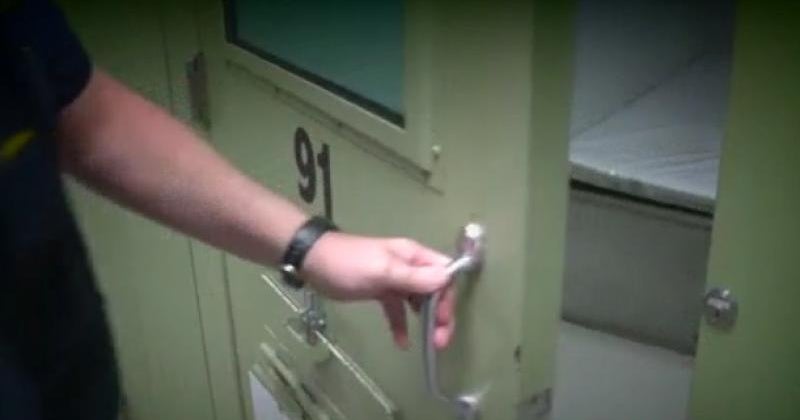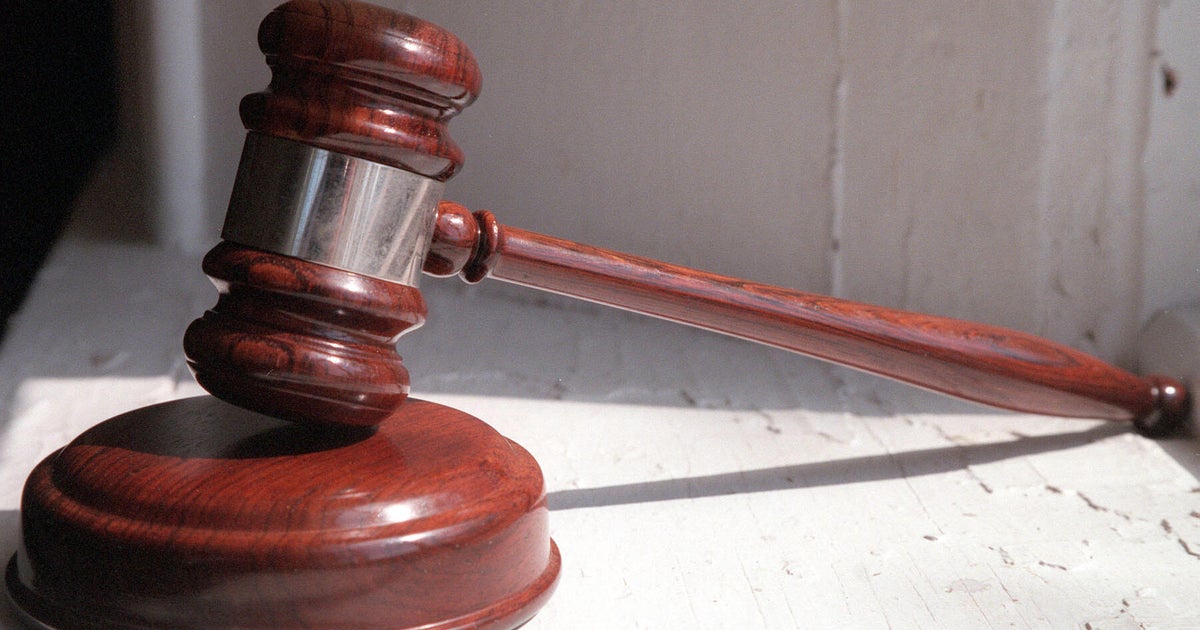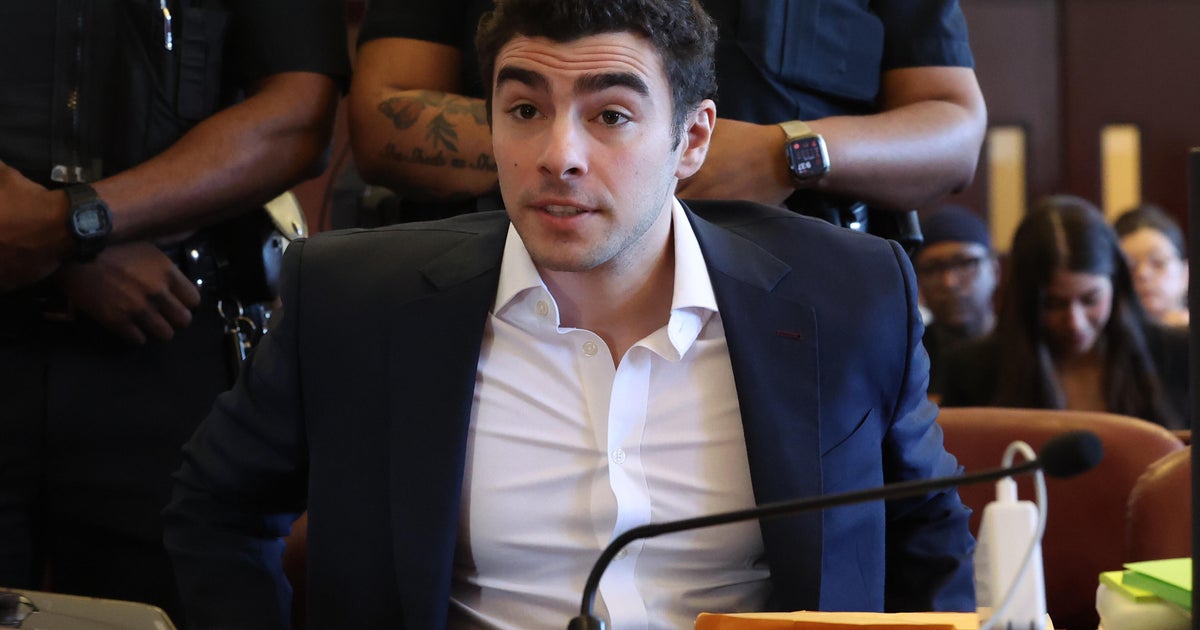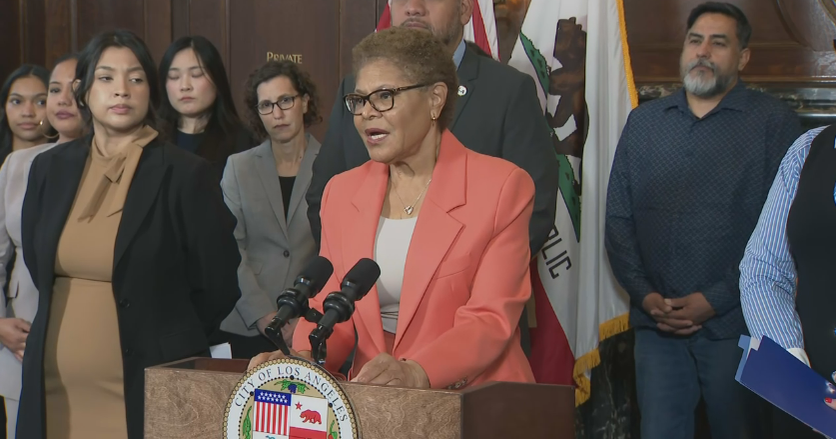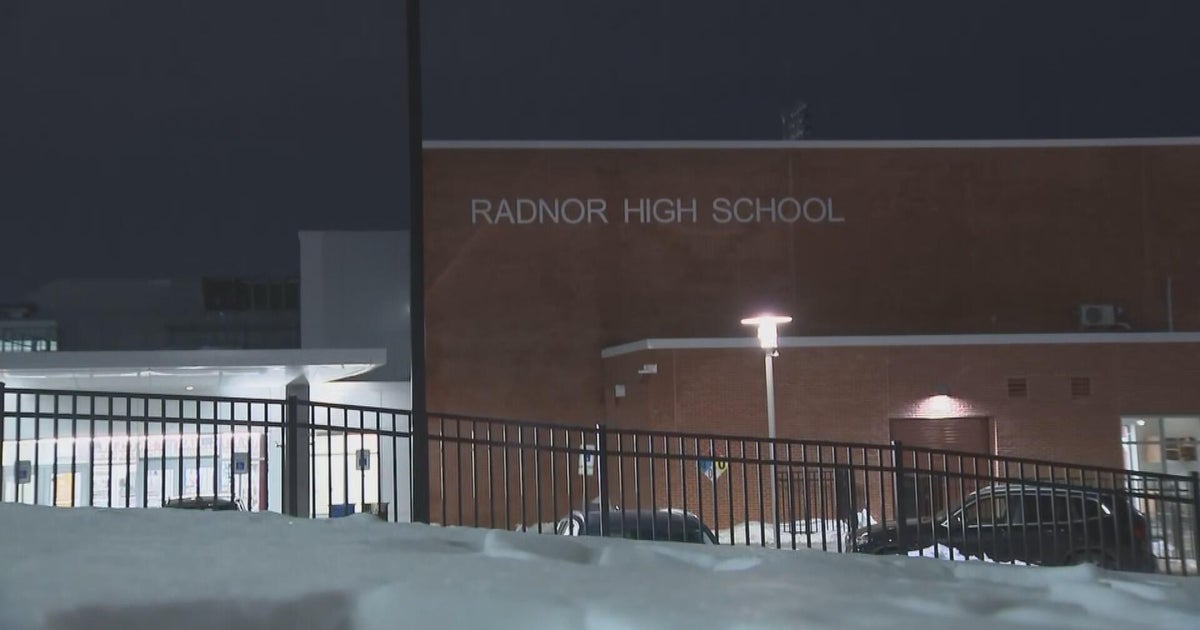Ed Burke Trial: Jury convicts ex-alderman in corruption case; one co-defendant acquitted, another convicted
CHICAGO (CBS) -- Former Chicago Ald. Ed Burke has been found guilty of 13 of 14 counts, including racketeering conspiracy, after a six-week federal trial for scheming to use his political clout at City Hall to pressure people into hiring his private property tax law firm.
The verdict against Burke included convictions for racketeering conspiracy, federal program bribery, attempted extortion, conspiracy to commit extortion, and using an interstate facility to promote unlawful activity. The most serious of those counts – racketeering and the extortion charges – carry sentences of up to 20 years each.
He was convicted of all four schemes involving the Old Post Office in downtown Chicago, a Burger King restaurant in his ward, a Binny's Beverage Depot store, and the Field Museum.
The only count for which Burke was acquitted was one count of conspiracy to commit extortion regarding the Burger King franchise, although he was convicted of other counts tied to that scheme.
The jury deliberated approximately 23 hours over four days before reaching the verdict.
As the judge read the verdict, Burke's wife, Anne, came up from behind him to give him a hug and kiss as he sat stoically at the defense table, showing no emotion as each guilty verdict came down. Several of their adult children and a grandchild were sitting behind them.
Burke later left the Dirksen Federal Courthouse without comment. He offered no answer when asked how it feels to be a convicted felon as he and his wife got into a waiting car outside the courthouse. He also did not speak to reporters after later arriving at his home on the Southwest Side of Chicago.
Jurors found Burke guilty of trying to extort the Field Museum by threatening to use his clout to block a proposed admission fee increase after learning the museum had not considered his goddaughter for an internship.
He was also accused of using his City Hall clout to squeeze the developers of the Old Post Office into hiring his law firm for property tax work, in exchange for his help with tax incentives for a $600 million redevelopment project, with restoring water service for the building, and in disputes with Amtrak over access to railroad property under the building.
A third scheme involved Burke convincing developer Charles Cui to hire his law firm for property tax work in exchange for the alderman's help getting a permit for a pole sign for a Binny's Beverage Depot in Portage Park.
The final scheme centered on Burke's efforts to shake down the owners of a Burger King franchise in his ward who were seeking to renovate the restaurant. Burke is accused of pressuring them to hire his law firm in exchange for his help with permits needed for the job.
After the verdict, Morris Pasqual, the acting U.S. Attorney for Chicago, said Burke betrayed the trust of the people who elected him.
"This case was about bribery and extortion occurring at the highest levels of Chicago city government," he said. "The people have a right to honest and open government, where decisions about official actions that public officials take or do not take are based not on their own private financial interests, but in the public interests. That did not happen in this case. In this case, defendant Burke had his hand out for money. He tied the giving of official action by him to the giving of money to him."
CBS 2 Legal Analyst Irv Miller said just one racketeering count on which Burke was convicted could result in a sentence of 20 years. But this is the maximum sentence, which Burke is not likely to receive.
"As far as guilty and not guilty, he's guilty today," Miller told CBS 2 Investigator Megan Hickey.
Miller said a prison sentence is virtually guaranteed for Burke, and he expects Burke will get 8 to 12 years in prison on one racketeering count alone.
The next step for Burke, Miller said, will be meeting with a probation officer to prepare a pre-sentencing report that will be used to help U.S. District Judge Virginia Kendall determine his sentence.
Burke's attorneys also are expected to file a motion asking Kendall for a new trial. Such motions are virtually never granted, Miller said.
Afterward, Burke is expected to file an appeal with the Seventh Circuit Court of Appeals, which will decide whether to issue a decision quickly or sit on it. The most important question there is whether or not Burke will be able to remain free while the appeal is pending.
As it stands, Burke's sentencing hearing has been scheduled for June 19. Cui's sentencing has been set for June 17. Burke and Cui were allowed to remain free while they await sentencing.
While the verdict was almost a clean sweep for prosecutors against Burke, it was a mixed result for Burke's two co-defendants.
Burke's longtime aide Peter Andrews was acquitted of all counts against him. He was accused of helping Burke pressure th owners of 150 Chicago area Burger King restaurants into hiring Burke's law firm when they sought his help renovating a restaurant in his ward. It's rare for a defendant in a federal corruption case to be acquitted of all charges.
But developer Charles Cui, who was not in court on Thursday due to an undisclosed illness and listened to the vericty by phone, was found guilty on all counts. He was accused of hiring Burke's law firm in exchange for Burke's help getting a permit for a pole sign for a Binny's Beverage Depot. Cui was convicted of federal program bribery, using an interstate facility to promote unlawful activity, and making a false statement to the FBI. The federal program bribery charge carries a sentence of up to 10 years, with the other counts subject to up to 5 years in prison.
The case against Burke was built largely on the back of wiretap recordings, some of which were obtained with the help of former Ald. Danny Solis, who became a federal government informant after being confronted by prosecutors with his own misdeeds.
Solis' cooperation was pivotal to the investigation of the Old Post Office scheme, as the government tapped his phone for conversations with Burke, and Solis wore a wire for in-person meetings.
While the prosecution did not call Solis as a witness in the case, Burke's defense attorneys called him as their only witness, questioning his motives for cooperating against Burke. On the stand, Solis admitted he cooperated with the feds to save himself from a criminal conviction.
His cooperation with the Burke investigation came in exchange for a deferred prosecution agreement with the feds, which will see charges against him dropped in 2025 if he continues cooperating. In addition to helping federal prosecutors investigate Burke, Solis also cooperated against former Illinois House Speaker Michael Madigan, who faces his own racketeering trial next year.
Burke's lawyers tried to discredit Solis when he took the witness stand, and told jurors to ask themselves why prosecutors didn't call him to the stand. They argued no one needed Burke more than Solis, who used him to get out of his own legal mess.
But prosecutors argued they didn't need to call Solis to the stand to explain Burke's motives, because the secret recordings Solis obtained of his former colleague made that clear on their own.
Miller explained that using recordings of Solis paid off for prosecutors.
"The last thing a prosecutor wants is to put on a witness that's dirty - and he was dirty in the legal sense, because his credibility is an issue," Miller said. "When you have him recording the conversations and it's on tape, his credibility isn't an issue."
Miller also said the defense's choice to call Solis was a strategy geared toward his future appeal.
His best argument that he has is what people always ask me – why did they call Solis to the stand?" Miller told CBS 2 Investigator Megan Hickey. "Well, they called him because they want to use that as a grounds for appeal – saying the judge limited their examination of Solis, and therefore he didn't get a fair trial – so therefore the case should get reversed and retried."
CBS 2's Jim Williams asked Miller how someone as powerful and smart as Burke – one of Chicago's biggest power brokers for generations – could think he could get away with the crimes of which he is now convicted.
"He didn't think anybody was listening," Miller said. "Obviously, he didn't learn anything from [former Governor Rod] Blagojevich, or [former Governor] George Ryan, or all the other aldermen that have been convicted in this building and sent to the penitentiary."
Since 1976, approximately 2,100 federal corruption trials have occurred in the U.S. for public officials, and about 1,800 of those have been in the Chicago area. Burke now joins that seemingly neverending list.
Asked why political corruption seems to continue unabated in Chicago, despite multiple federal investigations leading to significant convictions against former aldermen, state lawmakers, judges, and even governors, U.S. Attorney Morris Pasquale said, "that's the $64,000 question."
"Alderman Burke obviously joins a long list of corrupt City Council aldermen who have been convicted of corruption charges over here in federal court. All I can say is what I said before, that we're determined to continue to investigate these cases, using any and all lawful tools at our disposal to ferret out that corruption," he said. "Obviously Alderman Burke was a very powerful alderman. This case has had massive publicity, and I'd like to think that public officials out there who are tempted to start down this path will be either further on notice that the federal government is out there, the FBI is out there, the U.S Attorney's Office is out there, and we're aggressively pursuing these types of matters."
Ald. Scott Waguespack (32nd), who replaced Burke as chair of the City Council Finance Committee after Burke stepped down from that post when he was first charged in 2019, said Burke's conduct is something many aldermen were aware of for a long time.
"I think this is a long time coming," said Waguespack. "A lot of us, you know, knew there were ethical issues in the Committee on Finance that Ed Burke was running for many years."
Waguespack said when he took over as Finance Committee chairman, he made an effort to change the rules to ensure ethical conduct. Waguespack has since been replaced as Finance Committee chair by Ald. Pat Dowell (3rd).
Ald. Bill Conway (34th), a former prosecutor, said the jury's verdict makes it clear "you can't do a public act in exchange for a private benefit."
"That is what we as public officials are given that trust, and clearly Alderman Burke violated it," he said.
Conway, who has prosecuted public corruption cases, said he hopes Burke's conviction "ushers in a new era of ethical behavior, of professionalism, and recognizing that you really can't get close to the line when it comes to these types of decisions."
Burke was the longest-serving alderman in Chicago City Council history. He was first sworn into office in 1969, and continued to win election after election, even after he was first charged in 2019. He decided not to run for another term in 2023, ending his run in office after 54 years.
Mayor Brandon Johnson released a statement following Burke's conviction:
Elected officials are responsible for serving with honesty and integrity, with a moral responsibility to their constituents to uphold and abide by the law. In the case that they fail to do so, it is imperative that they are held accountable. That is what the jury decided today.
Former Mayor Lori Lightfoot, a longtime critic of Burke, also released a statement following the verdict. In it, she invoked the name of the late Mayor Harold Washington, who faced opposition that thwarted his initiatives and plans in office from a bloc of aldermen led by Burke and former Ald. Ed Vrdolyak.
"With this jury's verdict, Ed Burke should rightfully be remembered as a man who elevated personal ambition and greed over doing the people's work.
"Along the way, Burke has had many, many enablers: the pernicious practice of aldermanic prerogative which, despite efforts to eliminate it, persists to this day, especially in zoning and development decisions. The other elected officials who, over the years, looked the other way as Burke systematically monetized the Finance Committee for his own personal benefit. And the party who gave Burke control over judicial nominations, so that decades of jurists became beholden to him.
"But like many before who feasted on their gluttonous power, Burke was felled because this total lack of accountability made him foolishly think he was invincible. So he grossly overplayed his hand. He dug his own grave and jumped in.
"Only time will tell if the lessons of Ed Burke's ascent and spectacular fall will lead to desperately needed reforms begun, but not nearly finished, around transparency and accountability. But meanwhile, with this verdict, rendered by a jury of his peers, the tyranny of Ed Burke is over. I like to think somewhere, Harold is smiling."




